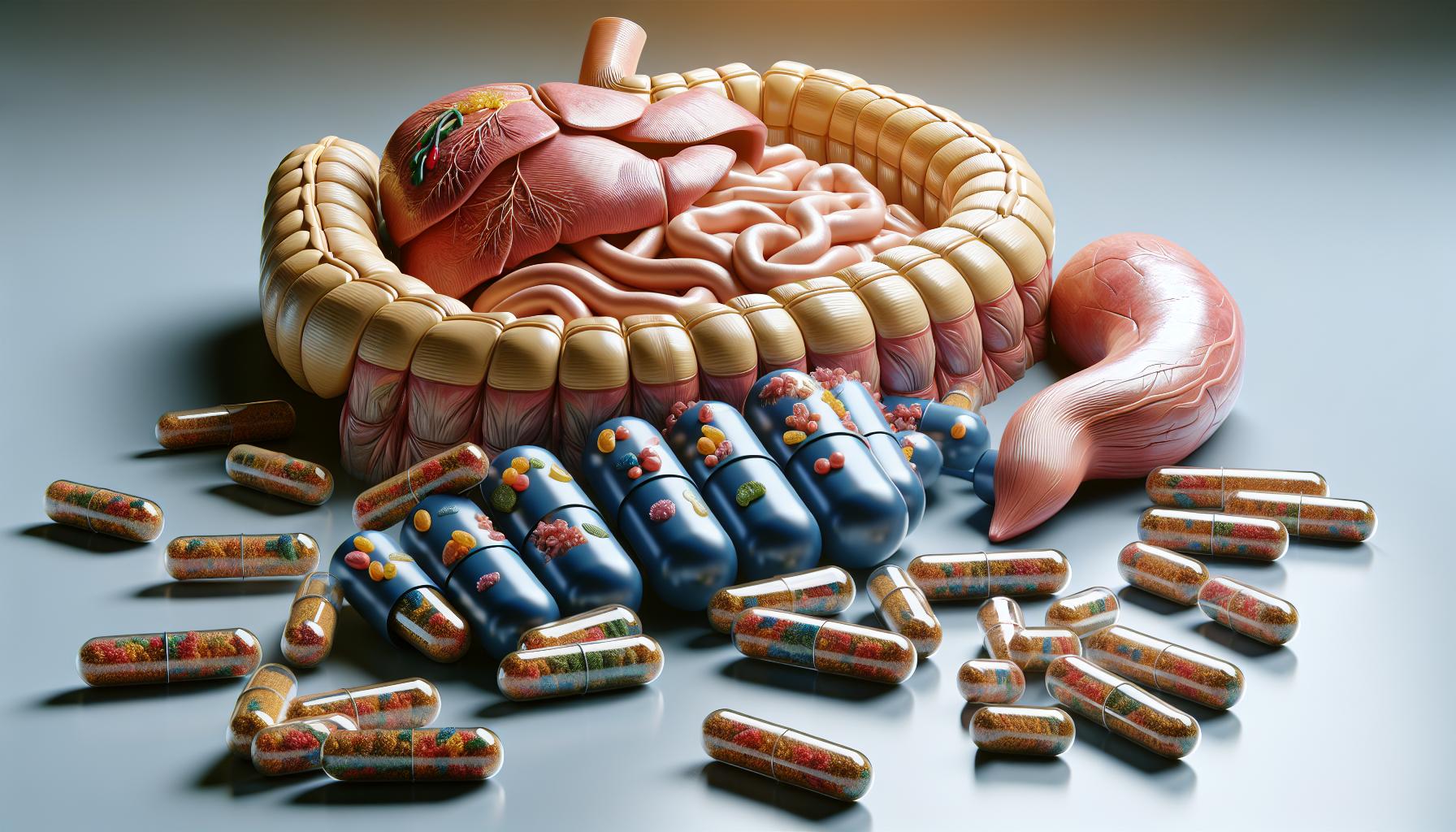
Introduction: A Deep Dive into the Digestive Enzyme Dilemma
If you’ve ever pondered the question, “Which organs of the digestive tract lack digestive enzymes?” rest assured, you’re not alone. At a glance, the answer to this intriguing inquiry can be summed up as follows: the esophagus and the large intestine. However, these brief bullet points merely scratch the surface of this multi-layered matter.
To understand the why and the how behind this digestive contradiction, we’ll take a journey down the alimentary canal, the magnificent metaphorical river that sustains our bodies ensuring the nutrients we eat are efficiently utilized, from our mouths to our… well, let’s politely say, “other end”. We’ll pause at each pit stop to understand the unique role each organ plays in this vital voyage.
Which Organs Of The Digestive Tract Lack Digestive Enzymes
The organs of the digestive tract that lack digestive enzymes include the esophagus and the large intestine (colon). The esophagus serves primarily as a conduit for moving food from the mouth to the stomach and does not participate in chemical digestion. The large intestine primarily absorbs water and electrolytes, and while it hosts bacteria that aid in digestion, it does not itself secrete digestive enzymes.
Surprising Start: The Esophagus
The initial intrigue begins in the esophagus, the long tube connecting your mouth and your stomach. Shockingly, this is where you’d first encounter a lack of digestive enzymes. But, don’t be too quick to dismiss it as purposeless.
Purposeful Peculiarity of the Esophagus
Although devoid of digestive enzymes, the esophagus has a crucial culinary task. It ushers ingested food down towards the stomach using an elegant and rhythmic wave-like muscle movement called peristalsis. However, the esophagus resists the stomach’s enzymatic empire, contributing solely to the physical, not chemical, breakdown of food.
Enzymatic Emptiness in the End: The Large Intestine
Fast forward past the enzyme-packed jurisdictions of the stomach and small intestine, and you’ll hit the other enzyme-empty organ, the large intestine. Much like the esophagus, it may seem an oddity that this sizable organ lacks digestive enzymes.
The Benevolent Barrenness of the Large Intestine
Despite this apparent barrenness, the large intestine carries the torch at the tail end of the digestive race, performing significant duties. It aids in the absorption of water and certain vitamins, ushering out waste products from the body. Even though it lacks our enzymatic heroes, the large intestine fosters a symbiotic relationship with bacteria, which break down the remaining substances and produce beneficial by-products.
An Enzyme-less Existence
So, there you have it. The esophagus and the large intestine, two seemingly contradictory parts of the digestive tract, are bereft of digestive enzymes. However, their importance to digestion should not be underestimated, serving as testaments to the body’s marvelous complexity and its brilliant use of foresight.
The Marvel Inside Us
Yes, the esophagus and the large intestine might lack the molecular machinery to chemically decompose food, but these sections play equally crucial roles in seamlessly integrating the digestive process. Each organ in the digestive tract, whether packed with enzymes or not, plays a vital role akin to cogs in a well-oiled machine, working in harmony to ensure our body functions as it should, amplifying the marvel that lies within us.
Conclusion: Elucidating the Enigmatic Enzyme Enigma
In summing up our culinary cruise along the alimentary canal, we see that while not all organs in the tract produce digestive enzymes, they are still instrumental in the digestive process. Ultimately, our body is a study in balance, a delicate dance of digestive diplomacy where everything and everyone – from enzymes to esophagi – has its place.
Frequently Asked Questions
1. If the esophagus lacks digestive enzymes, how does it contribute to digestion?
Though devoid of digestive enzymes, the esophagus plays a crucial role in channeling food from the mouth to the stomach. It employs a rhythmic muscle movement called peristalsis, which pushes the food down.
2. Does the lack of digestive enzymes in the large intestine affect its functionality?
No. Despite lacking digestive enzymes, the large intestine has an essential role in the absorption of water and minerals, as well as the excretion of waste. It houses beneficial gut bacteria that help break down remaining food particles.
3. Why doesn’t the large intestine have digestive enzymes?
The primary functions of the large intestine do not require digestive enzymes. It mainly deals with absorbing water, some vitamins and minerals, as well as processing and eliminating waste.
4. If digestion occurs in the stomach and small intestine, why do we need the esophagus and the large intestine?
While digestion predominantly happens in the stomach and small intestine, the esophagus and the large intestine have roles vital to the overall digestive process. The esophagus transports food, and the large intestine absorbs remaining nutrients and prepares waste for elimination.
5. Why do other parts of the digestive tract have enzymes and these organs do not?
The presence or absence of digestive enzymes correlates with the function of each organ in the digestive tract. Organs involved in the chemical breakdown of food, like the stomach and small intestine, have digestive enzymes. The esophagus and large intestine, contributing largely to the physical aspects of digestion, do not.

